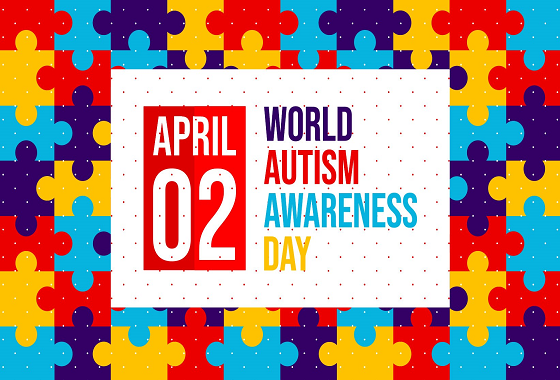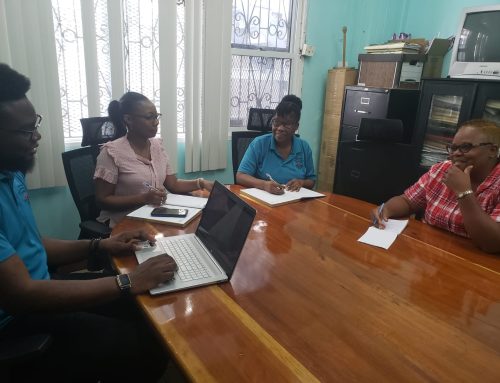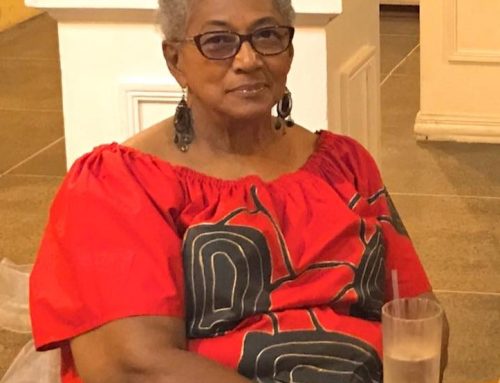
As the world brings awareness to Autism today under the theme “Empowering Autistic Voices”, the National Commission on Disability joins the voices in encouraging the Guyanese populace to provide more support and power to persons with Autism, to ensure they live a meaningful life and even pursue successful careers.
BACKGROUND
Autism Spectrum Disorder or ASD, is a neurodevelopmental disorder, which affects the nerves and is caused by complex genetic and environmental factors that come together to change the brain’s development. This fosters a deficit in social communication and interaction, which brings about gaps between educating communities, along acceptance and inclusion of persons who have Autism Spectrum Disorder. It is imperative to note, that fostering good environments in which persons are grown and nurtured is paramount.
In the United States, the prevalence of autism is one in every fifty-four children. Whereas in the Caribbean, the prevalence of autism is eleven in every one thousand children. Autism is not as common in the Caribbean when compared to developing countries. However, one still has to be aware of the fact that it is a neurological disorder, which can stem from socioeconomic environments and conditions.
Research has shown that this condition occurs more often in boys than girls and early symptoms may include a marked delay in language and social development. To be diagnosed with autism, a person must show symptoms in the areas of difficulties with communication and social interaction and restricted or repetitive patterns of behavior or activities.
In Guyana, the prevalence of autism varies by Region, with Region 4 recording the highest number of persons. This may be because this region is the most populated. However, research has also shown that Region 3, followed by Regions 6, 10, 5, and 2 have recorded cases of autism. Further, there are still yet to be published actual cases of children with Autism in Regions 8, 9, and 1 (National Household Survey on Persons with Disabilities NHSPWD – National Commission on Disability, 2016).
STEPS TO ENCOURAGE ACCEPTANCE
There are several steps towards encouraging acceptance of children with autism. However, this first starts with the parents of the child understanding what autism is and developing coping mechanisms to deal with the disorder.
Parents must encourage their children with autism to read books from diverse backgrounds. Two particular books should be a part of the autistic child’s bookshelf.
(a) A friend of Henry
(b) All My Stripes
Parents must also make it a habit of listening to their children and encouraging them to express themselves rather than dismissing them. They can constantly search the children for answers, this will encourage them to express themselves more. Parents must also articulate appropriate language when communicating with an autistic child and try to expand and create socialization that will benefit both parties.
EDUCATION
Continuous efforts of nurturing the autistic child can influence parents and teachers to collaborate and provide meaningful opportunities for them to learn and grow since their behaviors are a result of extreme anxiety, and the ability to create emotions. Autistic children in Guyana are nurtured in Public Special Schools, Private Special Schools, and Special Education Needs Units in regions 3, 4, 5, 6, and 10.
The Ministry of Education, responsible for the National Centre for Educational Resources Development, NCERD, is the steering force behind autism and other special needs represented throughout Guyana. The Regional Special Education Needs Disability and Diagnostic Treatment Center, which is located in the Cyril Potter of Education compound serves as an asset to the Ministry’s Special Education Needs and Services program and is equipped to diagnose and treat Persons with Disabilities inclusive of autism.
There is a need for the establishment of Special Education Needs Units in the outlying regions of Guyana.
As we commence Autism Awareness month on April 2, let us focus on building relationships, and supporting the inclusion of persons with autism in Guyana and the world at large. We must also strive to strengthen knowledge and educational systems for a person with autism so that they can also claim their rightful places in society, as they are encouraged and nurtured. Autism Spectrum Disorder must be recognized, monitored, managed, and supported by all.


